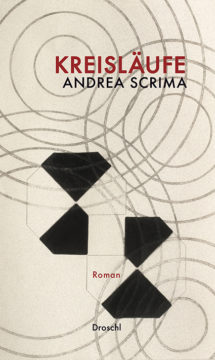by Andrea Scrima

In her second novel Like Lips, Like Skins (German edition: Kreisläufe, Literaturverlag Droschl, 2021) Andrea Scrima unpacks a family story of strong emotional ties. When the first-person narrator Felice finds her deceased father’s diaries, she combs them for clues to a past riddled with blind spots. She abandons a drawing series because she’s afraid she’s no longer able to tell the difference between reality and abstraction; years later she wonders if she studied art to make good on her father’s unfulfilled childhood ambition. In Like Lips, Like Skins, Scrima transplants her own works of art into fictional settings. Artistic perception permeates everyday life and speaks a formal language that, much like the first-person narrator’s recurring dreams and the symptoms of her trauma, lends itself to interpretation.
Part One of this interview was published December 20, 2021 on Three Quarks Daily.
For Part Two, which focuses on the function and presence of art in Like Lips, Like Skins, Ally Klein corresponded with the author over the course of several weeks via email; the following is an edited version of a talk the two gave on December 11, 2021 at Lettrétage in Berlin. Read more »

